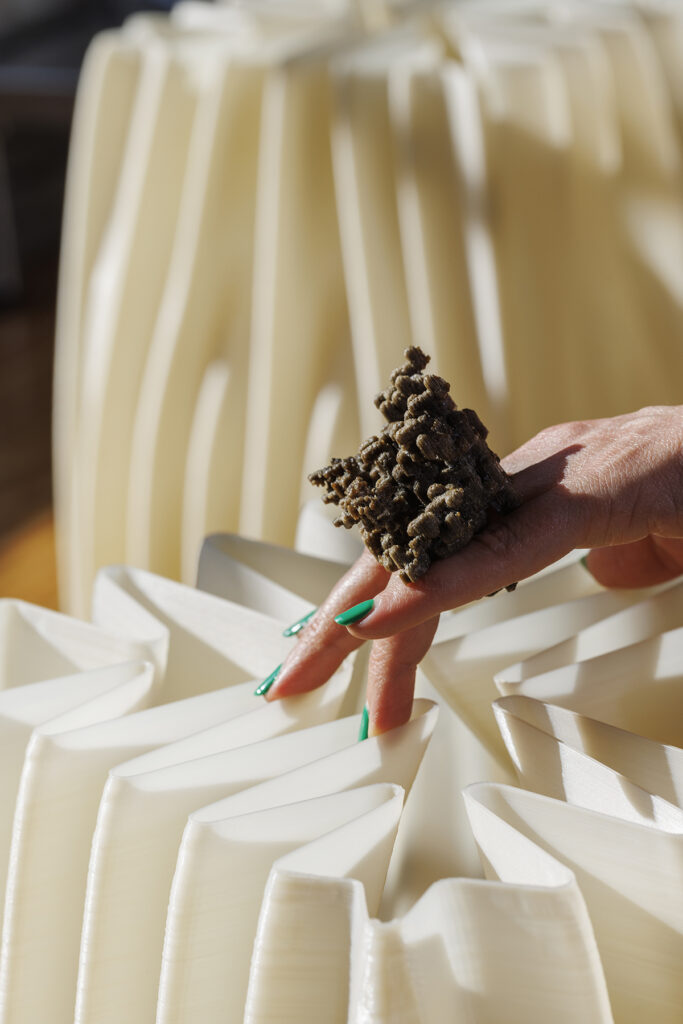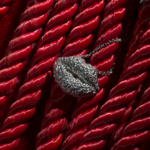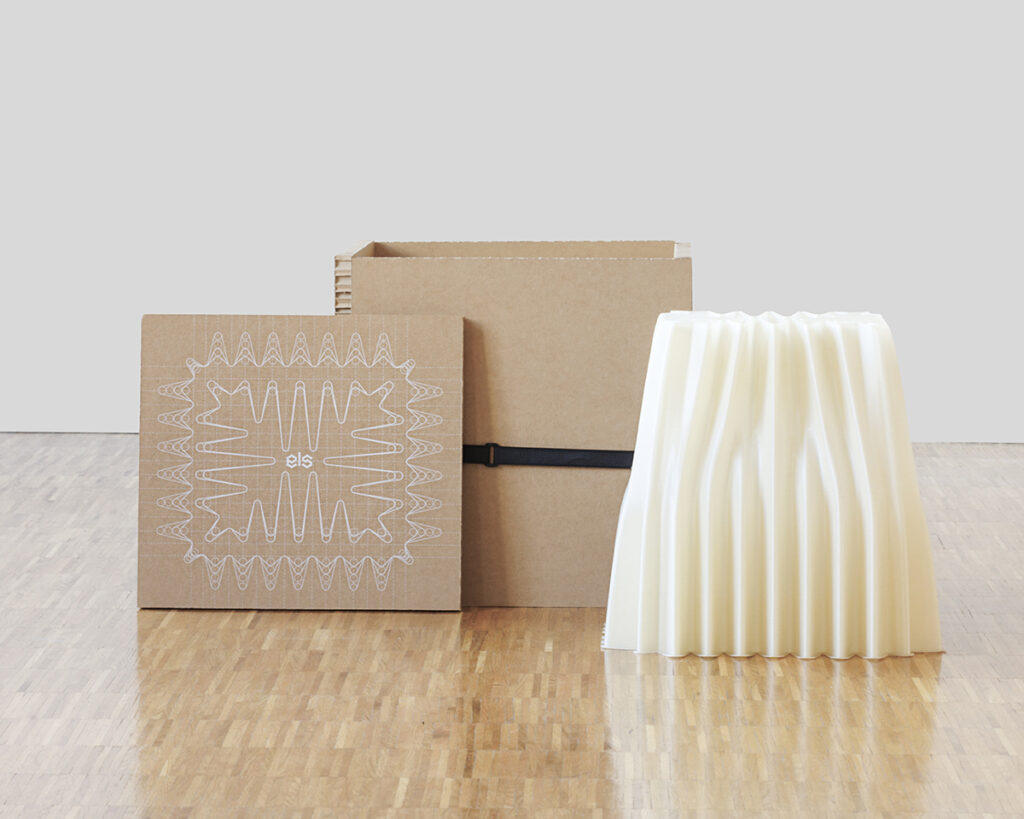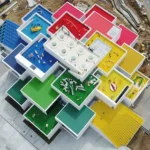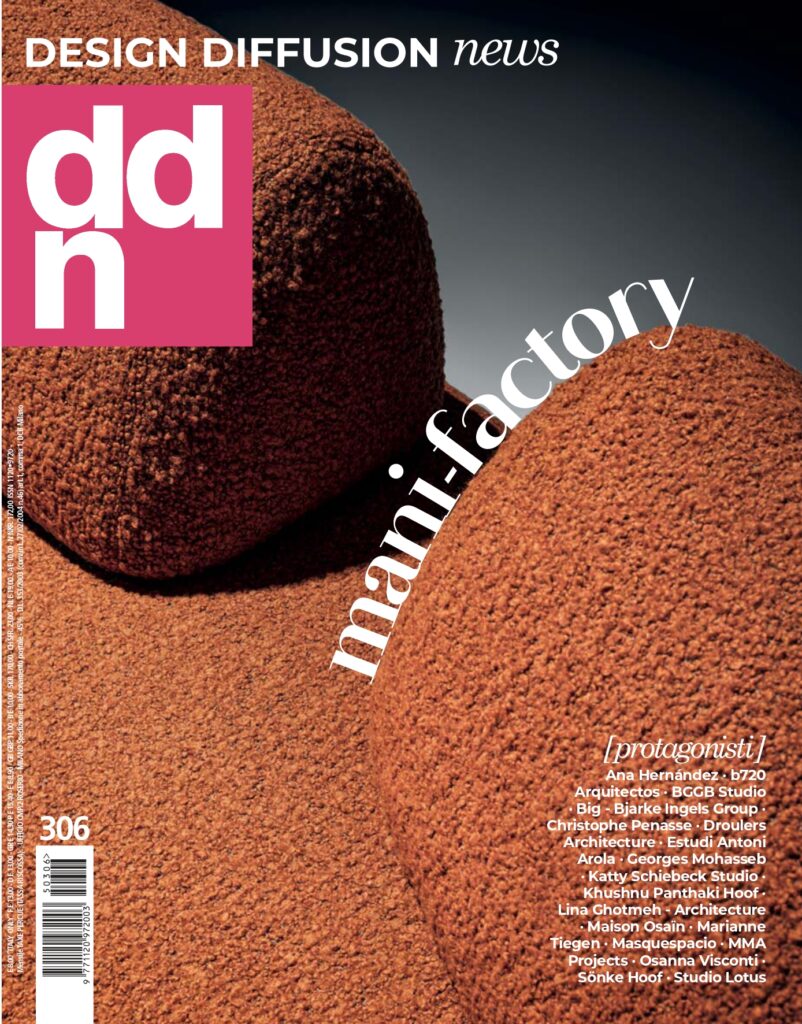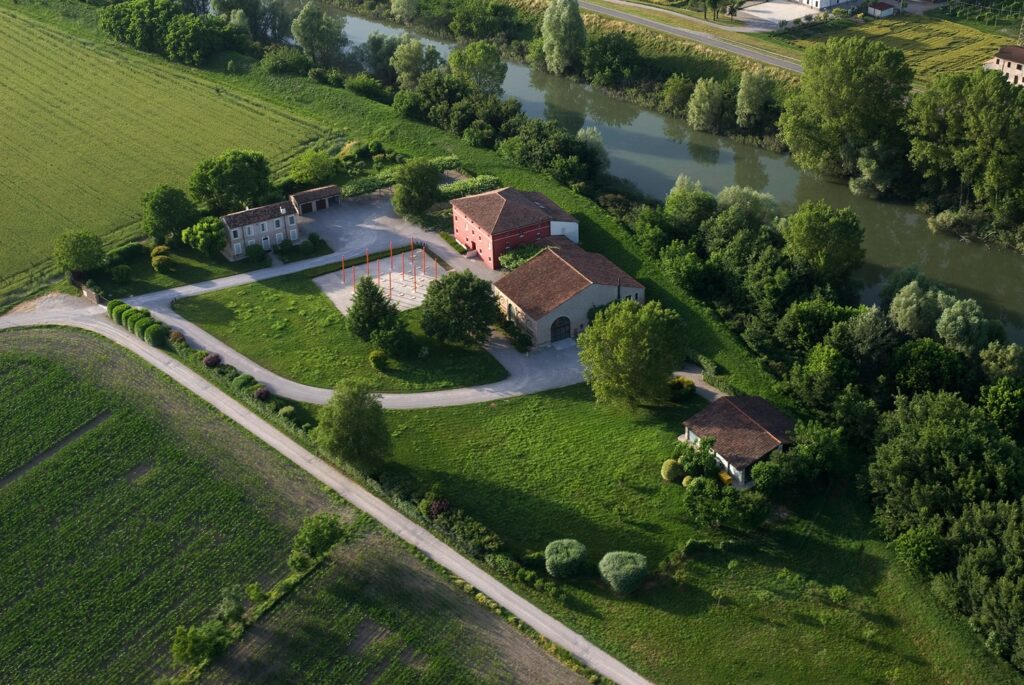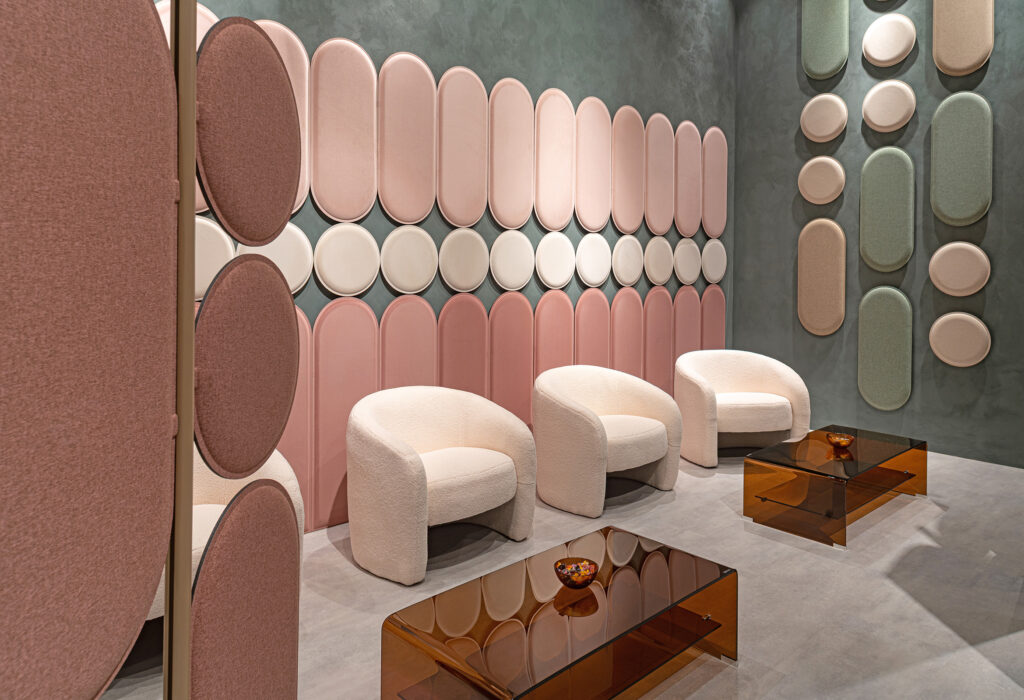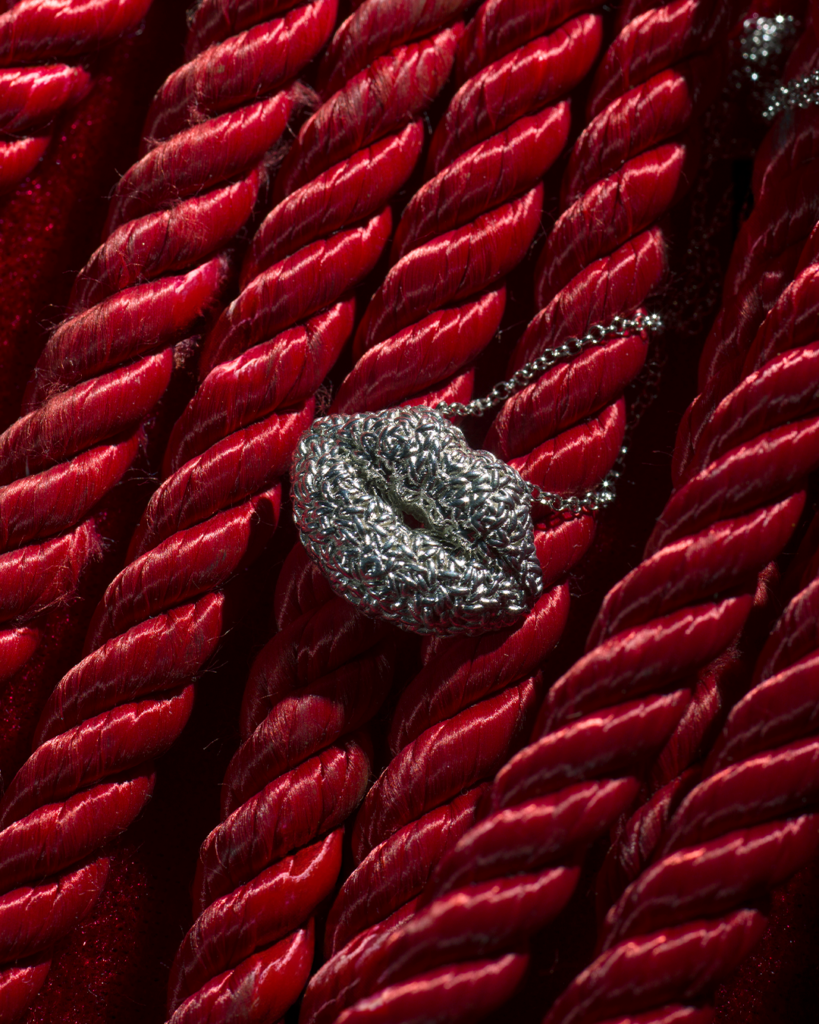ecoLogicStudio presents its first collection of biophilic design products: a bio-tech Airdirector, a compostable stool and a bio-digital ring
London-based architecture and design firm ecoLogicStudio, led by Claudia Pasquero and Marco Poletto, presents its first collection of biophilic design products. Part of a wider research project titled PhotoSynthetica, it includes a desktop biotechnological air purifier, a compostable stool and a 3D printed jewel made of micro-algal biomass.
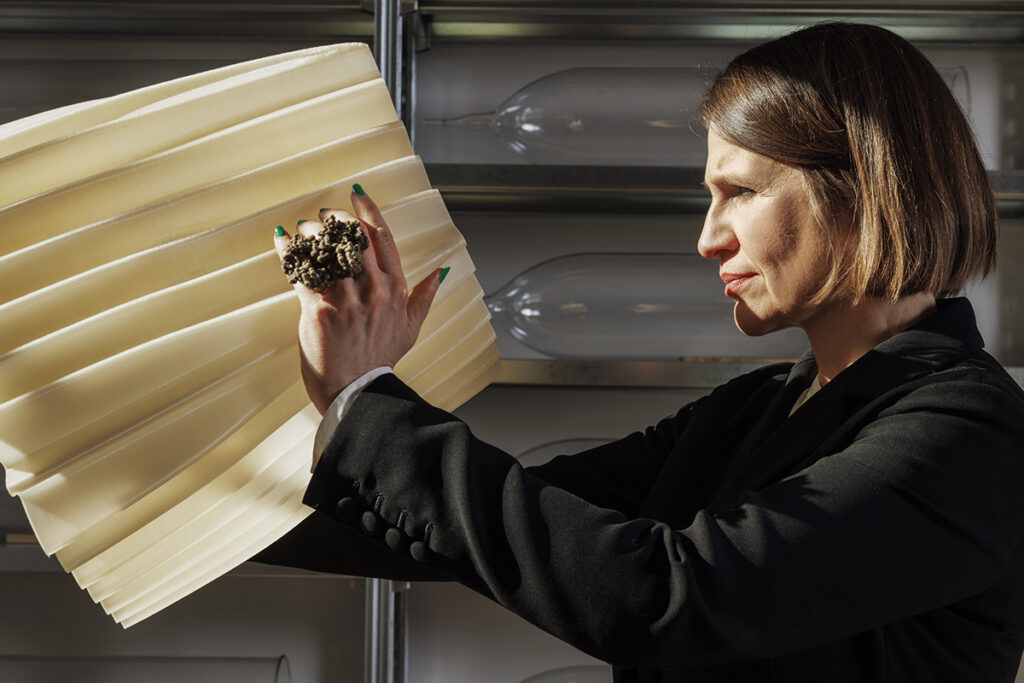
The PhotoSynthetica project
The PhotoSynthetica research project was launched in 2018 by ecoLogicStudio with an academic consortium to tackle the negative effects of climate change and air pollution on urban wellbeing.
Biophilic and digital design
Each product from the PhotoSynthetica Collection is conceived to connect the biophilic and digital design spheres and to implement true circularity of production and use.
Dr. Marco Poletto explains, “This collection is born from the dream of growing the city of the future from the waste and pollution of our current fossil civilization. More than products, these first three objects are tools to start a collective process of urban re-metabolization.”
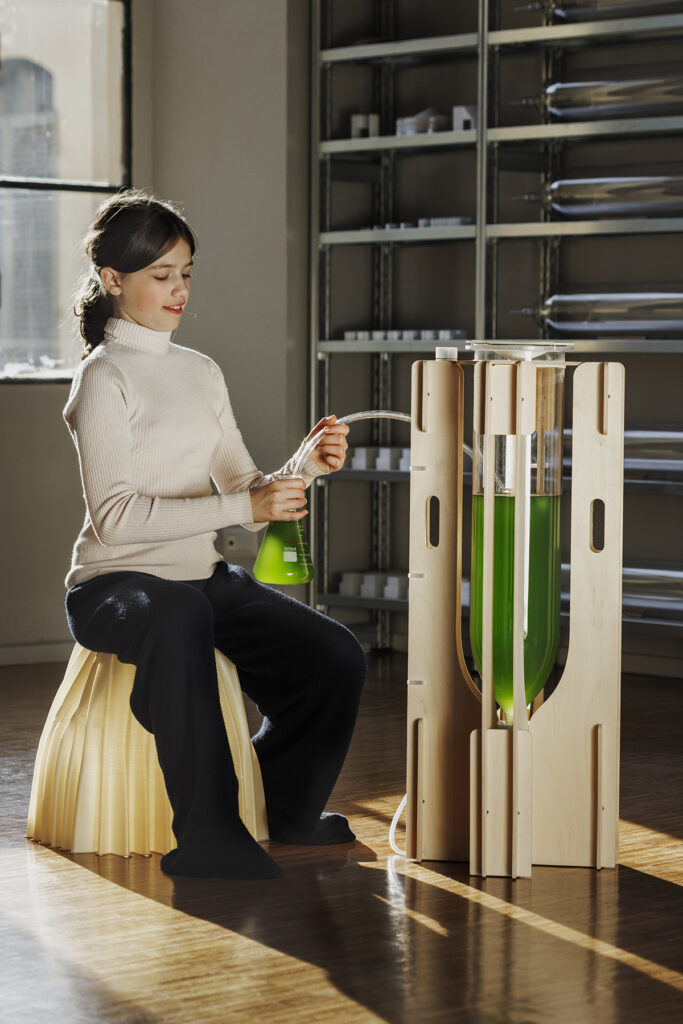
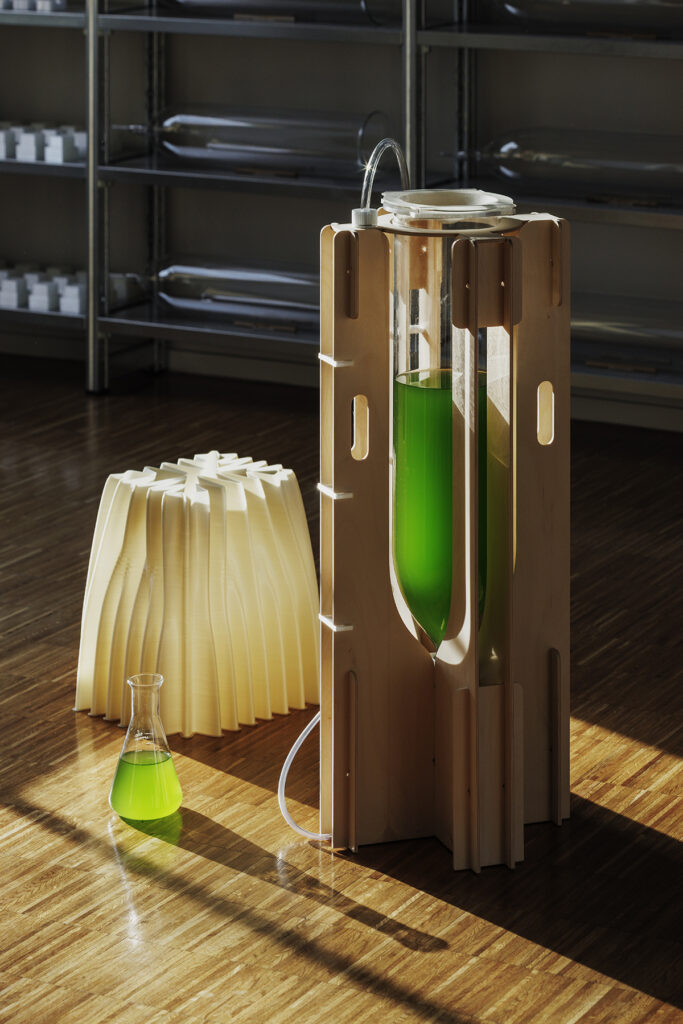
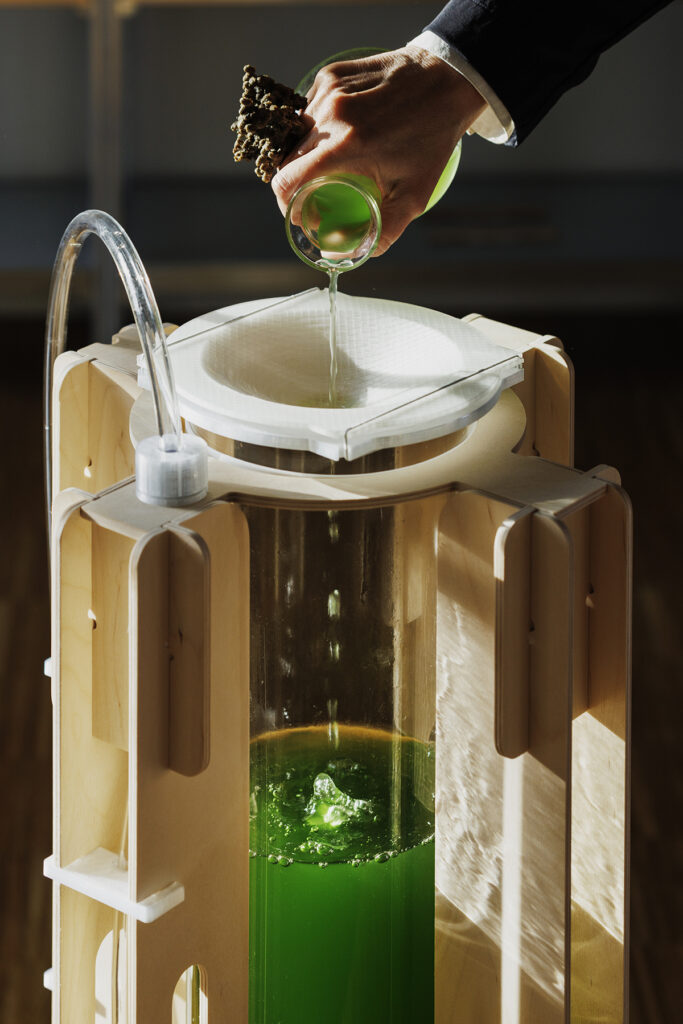
AIReactor
The new desktop biotechnological air purifier, called AIReactor, is an indoor photobioreactor capable of absorbing carbon dioxide and pollutants while oxygenating the air.
AIReactor is a completely reversible product, made of a few core elements that at the end of their life can be re-used, re-cycled or composted. An elegant interlocking structure consisting of birch plywood components supports a 1-meter-tall lab-grade glass photobioreactor hosting up to 10 liters of living photosynthetic micro-algae cultures.
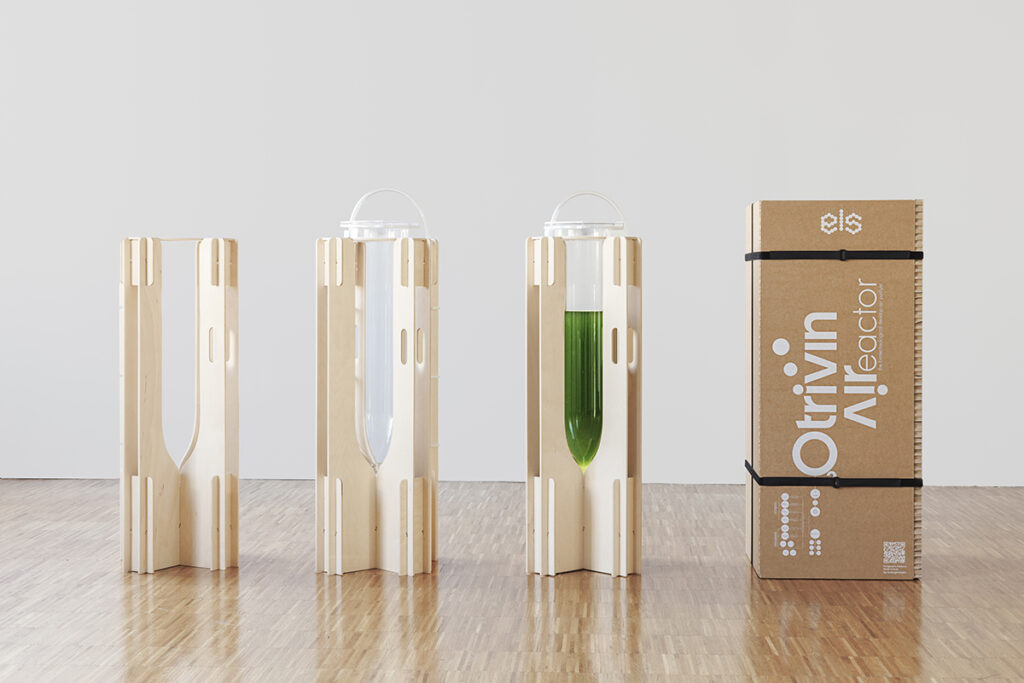
Technical features and interesting facts
AIReactor captures the air from the environment and introduces it at the base of the reactor constantly stirring the medium, simulating the effects of sea waves and currents. The gentle bubbling keeps the algae afloat, aids oxygenation and produces a soothing sound that emanates with the fresh oxygen into the surrounding space.
The algae harvest is a simple process that can be performed several times per week, collecting up to 7 grams of dry algae per day (one tablespoon). AIReactor has the same carbon capturing potential of a mature tree and is engineered to be a carbon neutral product in its entire lifecycle. Moreover, the product supports a holistic approach to wellbeing in the urban environment. Cleaner air has direct benefits for respiratory health and the symbiotic connection with nature offers proven benefits for mental health.
Thanks to the metabolic capacity of algae, each reactor can capture diverse air pollutants: 20 grams of CO2 (carbon dioxide) per day; 0,14 micrograms of PM2.5 per cubic meter; 0,29 micrograms of PM10 per cubic meter; and 0,69 micrograms of NO2 (nitrogen dioxide) per cubic meter.
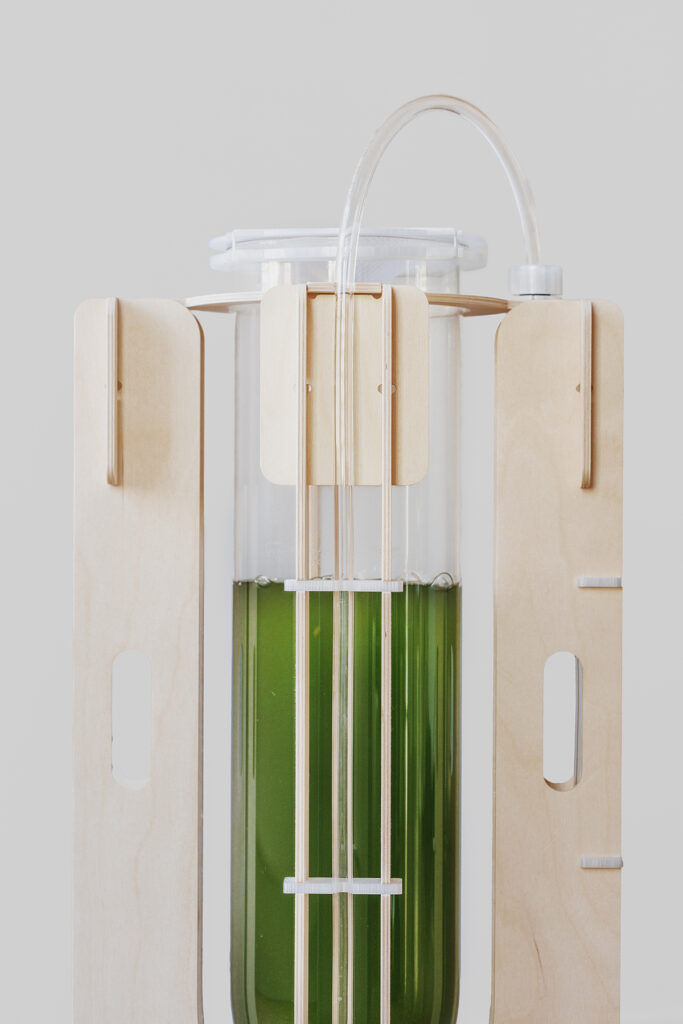
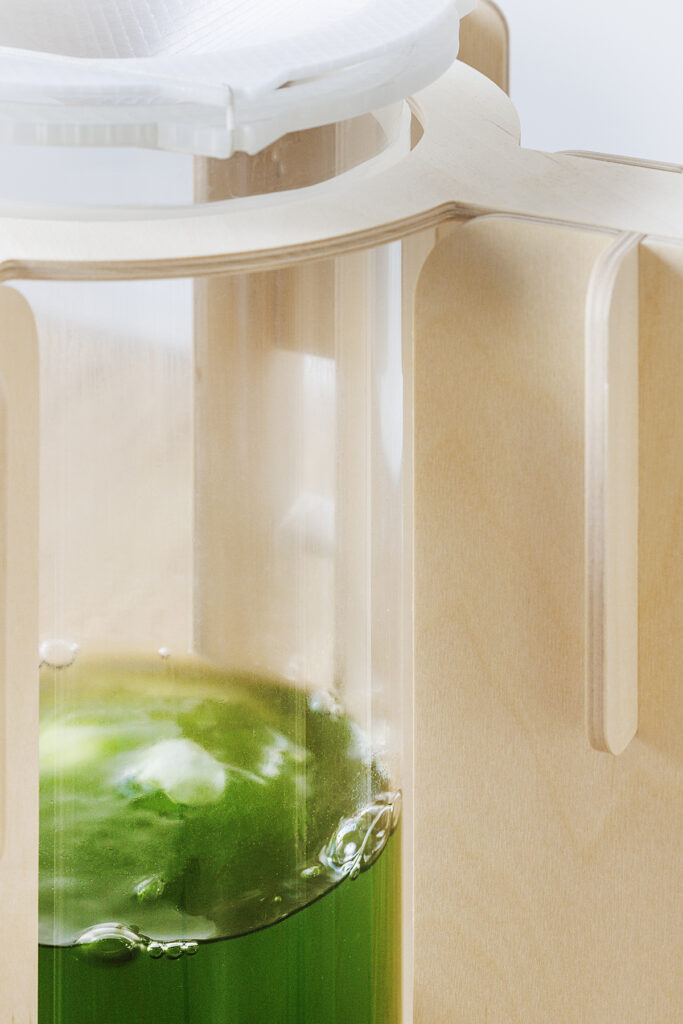
Compostable stool
The compostable stool represents a new frontier for bio-polymers since it leverages the potential of digital design and 3D printing technologies for mass customization. This product is the result of a research carried out by ecoLogicStudio and the Synthetic Landscape Lab at the Innsbruck University directed by Prof. Claudia Pasquero. In this experimentation, the inherent flexibility of the biopolymer material is enhanced by the unique pleated morphology of the vertical surface visible from the open top and bottom. Like the stem of a plant, it can flex and adapt locally to the user body and weight while resisting to the vertical load.
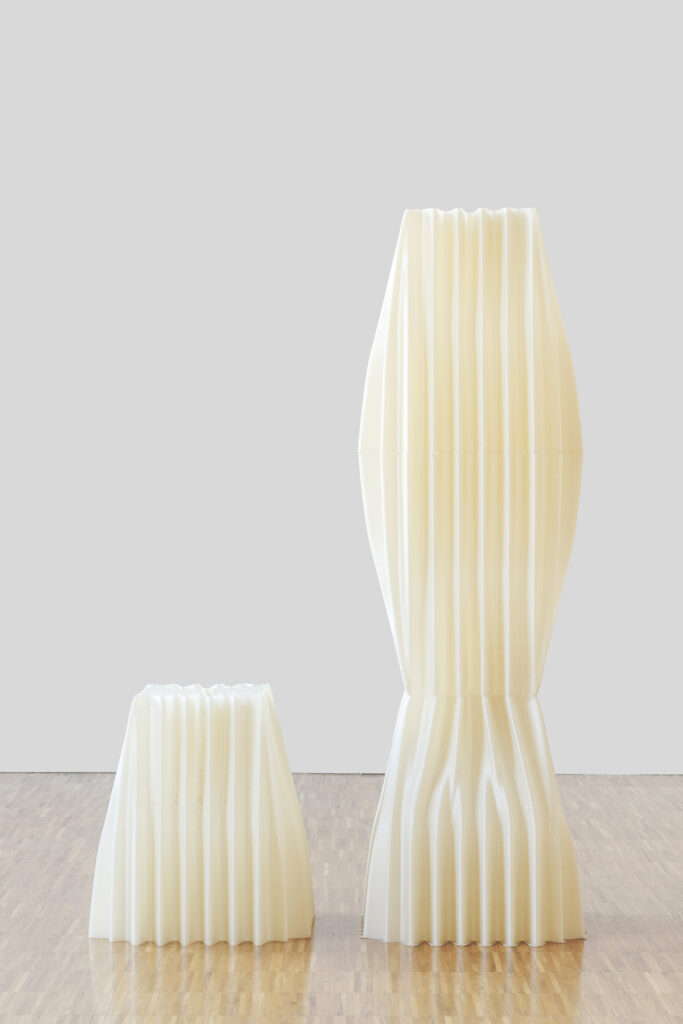

The combination of bio-tech materiality and morphological articulation, typical of digital design, opens to virtually endless customization of the product, making it possible to create a global distribution with many local production chains. The stool comes in a natural color and is 3D printed with a patented compound of flexible PLA/PHB biodegradable and compostable filament.
Bio-digital ring
The PhotoSynthetica Collection converts waste and pollution into valuable resources and the bio-digital ring turns the dream of making a jewel out of London’s pollution into reality. The ring embodies a new kind of technological life, designed by artificial intelligence and bio-digitally grown.
Prof. Claudia Pasquero says, “In this unique object, we can recognize one of the most significant aspects of contemporary technological evolution: its inevitable convergence with living nature. The ring has a powerful symbolic value; it is a call to collectively re-orient our value systems and to recognize preciousness where now we only see dirt.”
Each ring is composed of 30% of algal biomass on a base of polylactic acid (PLA). It weighs 20 grams and is able to store approximately the daily air filtration of one AIReactor.
Photo: Pepe Fotografia
